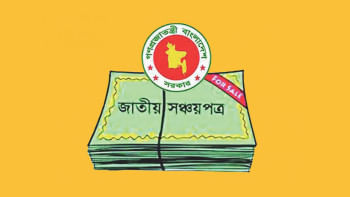Reform now at crucial stage

Poised on the cusp of discussions on its much-promised reforms, the interim government completes six months in office following a wave of turbulence.
The six major reform commissions are set to submit their full set of proposals today while Chief Adviser Prof Muhammad Yunus's government grapples with restoring order as angry protesters have torn down symbols of Awami League's autocratic regime.
Prof Yunus faces perhaps the most crucial phase as head of the interim government that took power on August 8, 2024 after former prime minister Sheikh Hasina fled to India after facing a popular uprising. Since then, the Nobel Peace laureate, who took over the helm of Bangladesh amid high expectations, has pledged "reforms followed by election" almost every time he was asked about an electoral roadmap.
Now that the recommendations to reform the constitution, electoral system, judiciary, civil service, police and the Anti-Corruption Commission are in, Prof Yunus faces the challenging task of reaching a political consensus before he can proceed with the election.
During the last 15 years of Awami League's absolute ironclad rule, it had rendered the parliament a rubber stamp, destroyed the electoral system, politicised the civil service and judiciary, severely eroding their integrity, and instituted a state-sponsored system of rampant corruption. It will now be the political parties who decide on the extent of reforms on each front.
Since expectations for reforms and ideological stance on key issues diverge sharply across the political spectrum, the challenge of achieving consensus is formidable.
But that is not the only challenge the Yunus-led interim government faces.
The overwhelming and unanimous support that Prof Yunus enjoyed when he was sworn in to helm this interim government, which included representatives from among the students who had spearheaded the uprising, may wane with the launch of a new party led by the protest leaders. Lest it be seen as partial, the interim government will have to clinically evaluate its neutrality having three cabinet members who are tipped to join the new political party and run in the upcoming election.
A professor of economics and globally acknowledged as the father of social business, Prof Yunus, along with his team of advisers, has not been able to bring down the rising costs of food and essentials. The closure of large factories (especially those linked with the Awami League leaders or beneficiaries of the previous regime) leading to job losses has only compounded the employment situation. Economic forecasts for the year remain dismal and show little signs of improving soon. Despite some of the reforms in the financial sector, the economy has remained almost stagnant.
To make matters even more complicated, the Muslim month of fasting, Ramadan is set to start in March when food prices typically peak. This will coincide with the scorching summer months when power demand is set to peak as well. However, efforts or measures to cater to power demand during the summer may prove to be insufficient. Projections on this front remain dismal as well.
The perceptibly deteriorating law and order situation has been another cause of concern for the citizens. There have been numerous incidents of petty crimes and mugging in broad daylight with rather insignificant efforts to bring that under control. The morale of the police force remains low even after six months of this government's tenure.
The debilitating series of protests and demonstrations that characterised the first few weeks of the incumbent's tenure continues even now. These protests and demonstrations, whether by jobseekers or students or deprived madrasa teachers, continue to plague the government and gridlock Dhaka almost every week, causing immense suffering to the citizens.
The incumbent's reputation for flip-flopping on decisions has only been reaffirmed with the recent, rather embarrassing, announcement and cancellation of the Bangla Academy awards.
While the lacklustre measures to contain the outbreak of dengue might be overlooked, the health ministry's lack of sincerity in dealing with the wounded protesters of the July uprising cannot certainly not be waved off. A full month gone in the new year, students are yet to get their textbooks, and it might be another few months still before young pupils get their books.
Relation with Bangladesh's most important neighbour, India, remains a work in progress and leaves much to be desired. Bangladesh has yet to send a clear message about its vision, which should be based on a win-win scenario.
Meanwhile, the issue of Rohingya repatriation has become ever more complicated as the Arakan Army has seized control of most of Rakhine State, making it rather uncertain at best, and almost impossible at worst.
With Donald Trump back in office, there is bound to be a shift in global order. But the effects are being felt quite directly as he has shut down funding for all USAID projects, which heightens apprehension regarding Rohingya expenditure besides another round of job losses due to this fund crunch.
It is unlikely that the incumbent will be able to meet all the expectations and deal with all these challenges. But it will at least have to get to the lowest hanging fruit and meet the bare minimum, which is what the chief adviser has been saying from the beginning. Necessary reforms, followed by election.


 For all latest news, follow The Daily Star's Google News channel.
For all latest news, follow The Daily Star's Google News channel. 






Comments